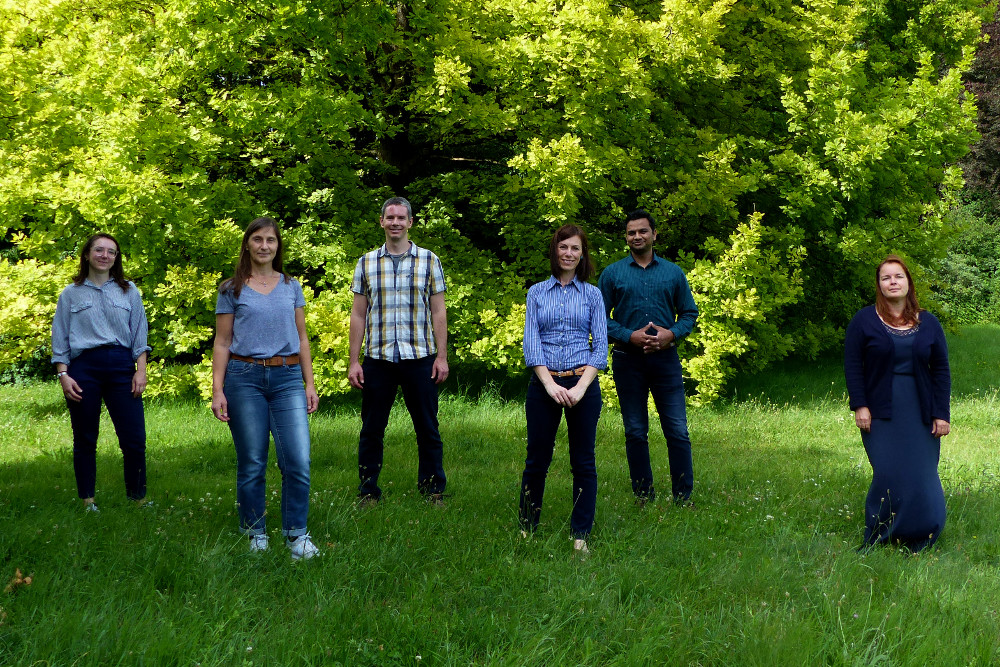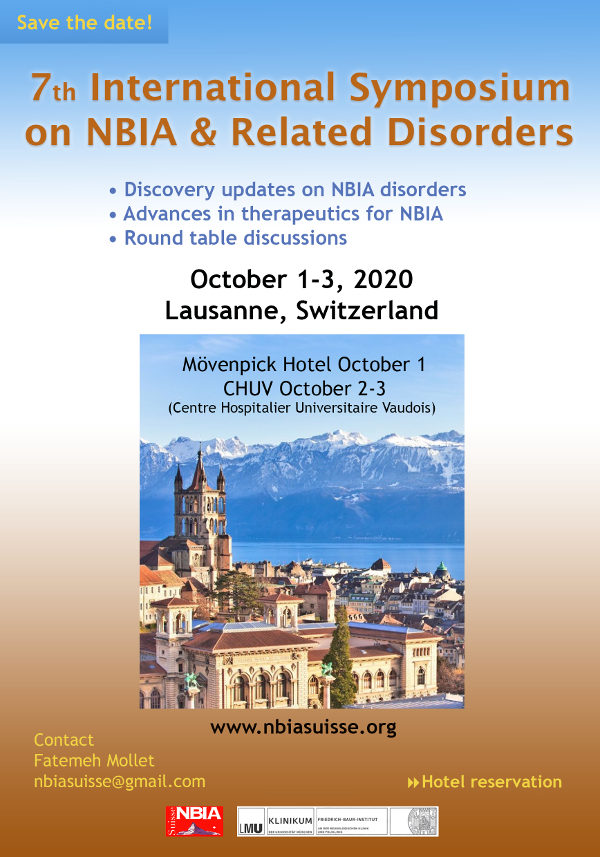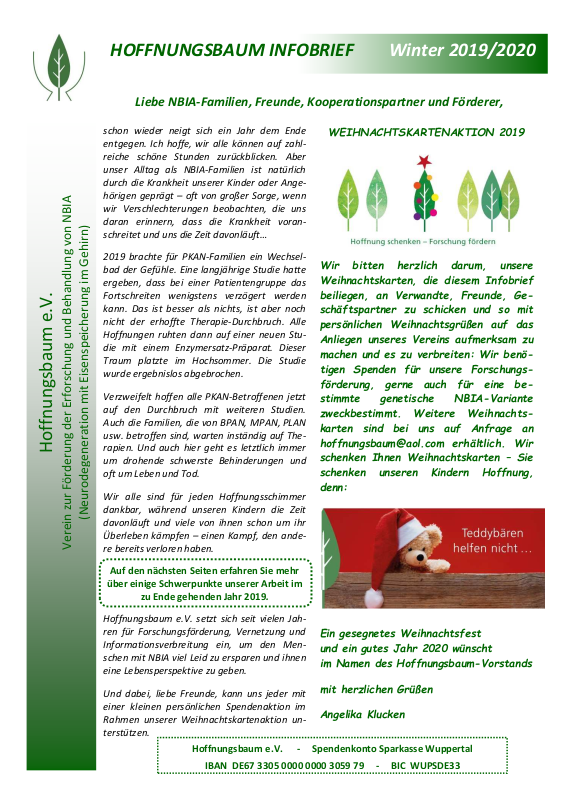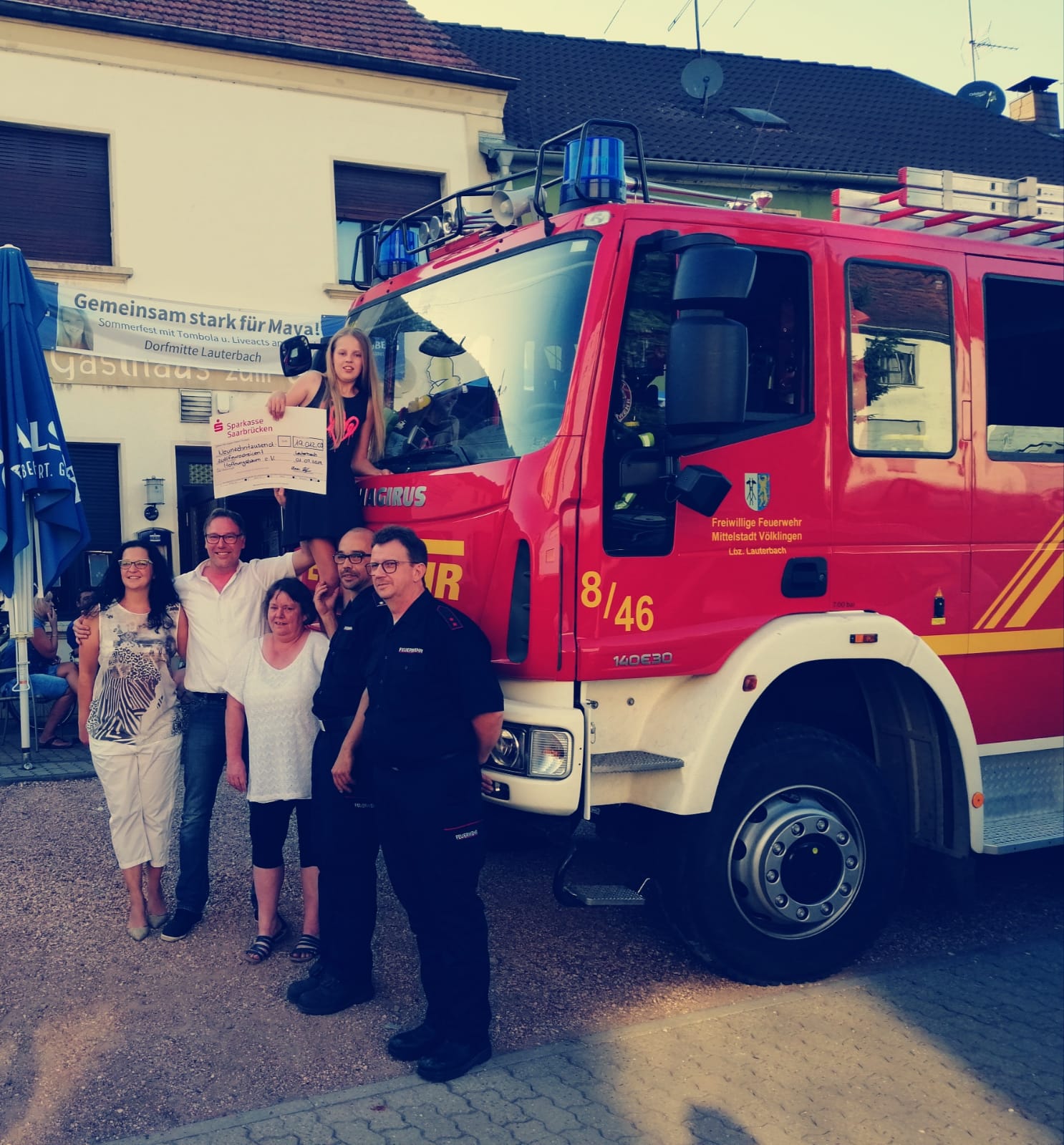Hoffnungsbaum e.V. finanziert MPAN-Projekt am Helmholtz-Zentrum München
Hoffnungsbaum e.V. finanziert MPAN-Projekt am Helmholtz-Zentrum München
Hoffnungsbaum e.V. vergibt Fördermittel in Höhe von € 151.540 an Dr. Arcangela Iuso und ihr Team vom Institut für Neurogenomik am Helmholtz-Zentrum in München. Die Fördersumme finanziert ein auf 27 Monate angelegtes Forschungsvorhaben zur Aufdeckung wesentlicher Krankheitsmechanismen bei MPAN (Mitochondrien-Membran-Protein-Assoziierte Neurodegeneration). Projektleiterin Dr. Arcangela Iuso, eine erfahrene MPAN-Forscherin, untersucht mit ihrem Team dabei die Rolle des vom Gen C19orf12 gesteuerten Proteins im Lipid-Stoffwechsel von Zellen.
MPAN gehört zu den vier häufigsten Subtypen in der Gruppe der Erkrankungen, die man als Neurodegeneration mit Eisenspeicherung im Gehirn (engl. Abkürzung: NBIA) zusammenfasst. Diese NBIA-Form führt zu fortschreitenden Bewegungsstörungen sowie oft zu neuropsychiatrischen Symptomen und Beeinträchtigungen des Sehvermögens. MPAN beginnt überwiegend im späteren Kindesalter und führt unweigerlich zu schweren Behinderungen. Noch gibt es keine Therapie, die diesen Verlauf verzögern oder stoppen könnte.
Mutationen im Gen C19orf12 verursachen MPAN. Sie führen zu einer Beeinträchtigung der entsprechenden Proteinfunktion. Leider ist bis heute die genaue Funktion dieses Proteins nicht entschlüsselt. Exakt an diesem Punkt setzen Dr. Iuso und ihr Team nun an. Sie untersuchen in ihrem Forschungsprojekt die Hypothese, dass das C19orf12-Protein sowohl den Lipidhaushalt in der Zelle als auch den Austausch von Molekülen zwischen den innerzellulären Organellen reguliert. Wenn diese zellulären Prozesse gestört sind, kann es zu abnormer Anhäufung von Stoffwechselprodukten wie beispielsweise Lipiden oder Eisen kommen.

v.l.n.r.: Doktorandin Enrica Zanuttigh, Kooperationspartner Drs. Lucia Berti, Ben Engel, Sophie Ayciriex (nicht in Bild), Projektleiterin Dr. Arcangela Iuso, Nachwuchswissenschaftler Dr. Tilak Kumar Gupta, und Technische Assistentin Annett Hering arbeiten gemeinsam an der Untersuchung der Rolle von C19orf12 im Lipidstoffwechsel der Zellen.
„Mit dem vorgeschlagenen Projekt wollen wir die Funktion des C19orf12-Proteins als potentielle Verknüpfung zwischen Membranen innerhalb der Zelle untersuchen und die Auswirkungen von Mutationen im Gen C19orf12 auf zelluläre Prozesse, die hauptsächlich mit dem Lipidstoffwechsel zusammenhängen, vollständig aufklären“, erklärt Iuso ihr Vorhaben.
Es wäre ein wichtiger Meilenstein für die MPAN- und NBIA-Forschung, endlich die zelluläre Funktion des C19orf12-Proteins zu entschlüsseln. Da es bei vielen NBIA-Erkrankungen in den zugrundeliegenden molekularen Mechanismen Überschneidungen gibt, könnten sich aus diesem Projekt durchaus auch Erkenntnisse für andere NBIA-Formen ergeben.
Iuso und ihr Team werden mit dem Labor von Dr. Benjamin Engel auf dem Helmholtz-Pionier-Campus zusammenarbeiten, um eine Spitzentechnologie einsetzen zu können, die Kryo-Elektronentomographie. Diese Technik erzeugt dreidimensionale Bilder von Zellen mit feinen molekularen Details. Durch die direkte Abbildung von Proteinen, die in der natürlichen zellulären Umgebung in Aktion sind, ermöglicht die Kryo-Elektronentomographie molekulare Einblicke in zelluläre Prozesse und damit auch in Krankheitsmechanismen. Die Gruppen von Iuso und Engel werden Zellen von MPAN-Patienten abbilden.
Weitere Kooperationspartner des Projekts sind Dr. Sophie Ayciriex vom Institut für Analytische Wissenschaften an der Universität Lyon, sowie Dr. Lucia Berti vom Institut für Diabetesforschung und Stoffwechselerkrankungen des Helmholtz-Zentrums München an der Universität Tübingen.
„Wenn es uns gelingt, die Funktion von C19orf12 im Kontext des Lipidstoffwechsels aufzuklären“, sagt Iuso, „wird das hoffentlich den Weg für die Entwicklung einer wirksamen Behandlung von MPAN auf der Grundlage der Krankheitsmechanismen ebnen“.
Die Finanzierung dieses Forschungsprojekts wurde durch zahlreiche Spendenaktionen und Einzelspenden ermöglicht. Aufgrund der Privatinitiative einer Familie, deren Tochter 2018 die MPAN-Diagnose erhalten hat, und ihrer vielen Unterstützer insbesondere im Saarland, konnte damit ein bedeutendes Forschungsprojekt zur Erhellung der Krankheitsmechanismen gestartet werden, um die Wege zu Therapien zu ebnen. Im Namen von Maya und aller von MPAN betroffenen Kinder, Jugendlichen und Erwachsenen auf der Welt bedanken wir uns an dieser Stelle noch einmal herzlich bei allen Unterstützern für die überwältigende Spendenbereitschaft. Die Spendenaktion wird zugunsten weiterer MPAN-Projekte fortgesetzt: Helft Maya

Das Helmholtz Zentrum München verfolgt als Forschungszentrum die Mission, personalisierte medizinische Lösungen zur Prävention und Therapie von umweltbedingten Krankheiten für eine gesündere Gesellschaft in einer sich schnell verändernden Welt zu entwickeln. Der Hauptsitz des Zentrums liegt in Neuherberg im Norden Münchens. Das Helmholtz Zentrum München beschäftigt rund 2.500 Mitarbeitende und ist Mitglied der Helmholtz-Gemeinschaft, der größten Wissenschaftsorganisation Deutschlands mit mehr als 40.000 Mitarbeitenden in 19 Forschungszentren.
Am Institut für Neurogenomik (ING) steht die genetische Grundlage von neurologischen Erkrankungen im Fokus. Forschungsschwerpunkt bilden dabei die zugrundeliegende genomische Architektur und die molekularen Mechanismen komplex-genetischer sowie seltener neurologischer Erkrankungen. Ziel ist es, die genetische Grundlage von neurologischen Erkrankungen zu erforschen, um deren Diagnose zu verbessern und Patienten langfristig eine maßgeschneiderte individuelle Therapie anbieten zu können.




